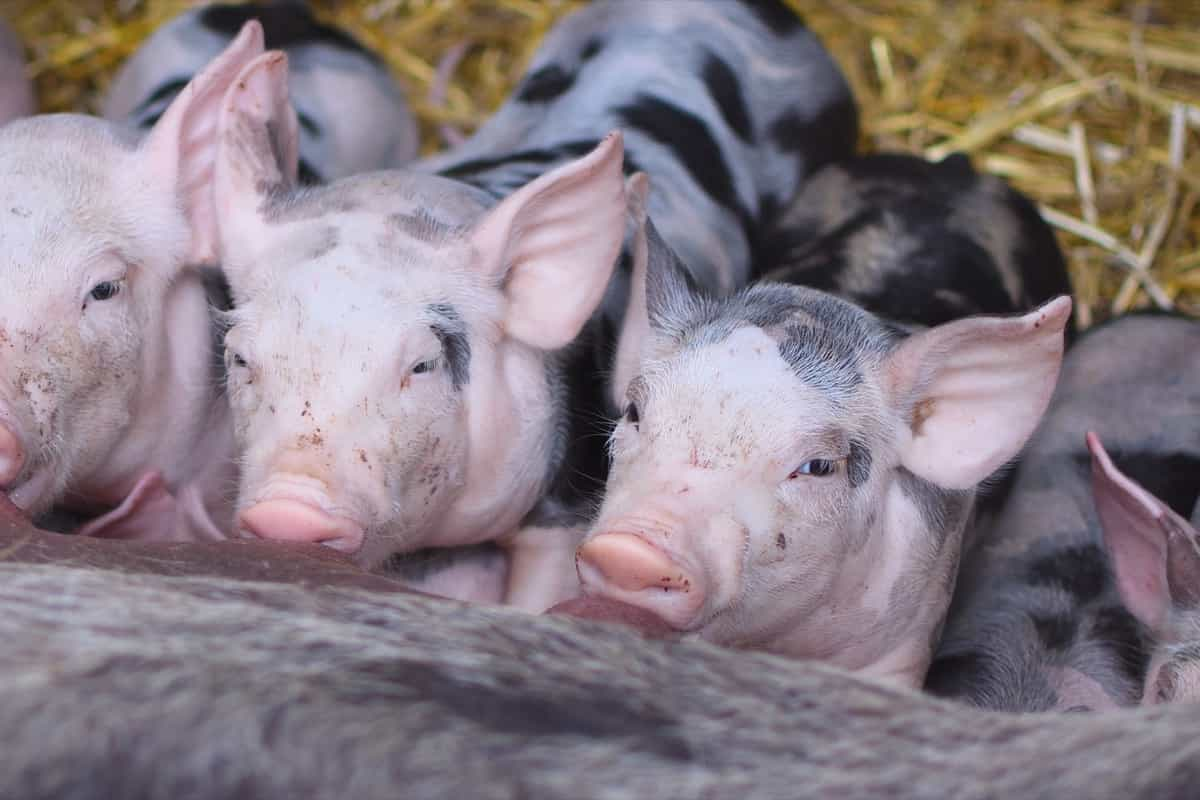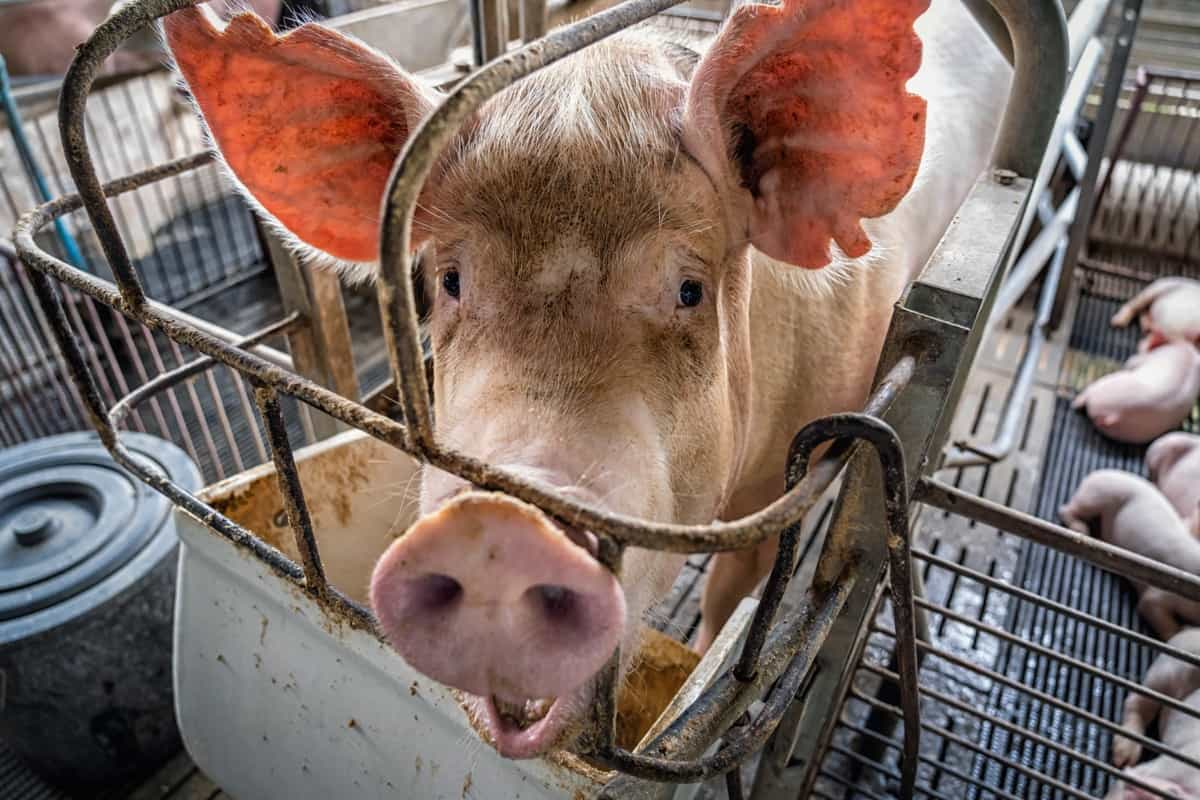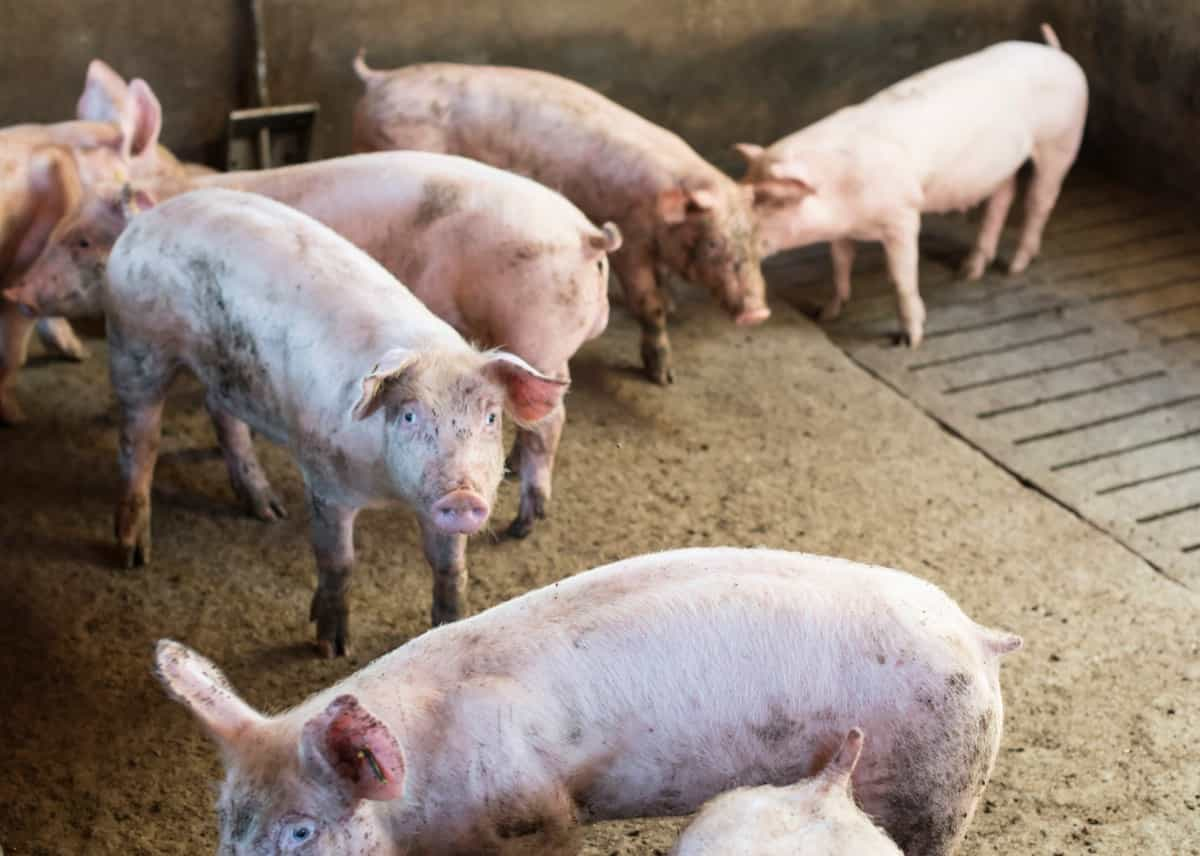The Government of India has introduced several subsidy schemes to promote pig farming. These schemes aim to provide financial assistance to pig farmers, encourage the adoption of scientific methods in pig farming, and increase the production and productivity of pigs. Below we learn about Indian government schemes for pig farming, NABARD loan for pig farming, and top government subsidy schemes in India.

Top 5 Government Pig Farming Subsidy Schemes in India
National Livestock Mission (NLM)
The National Livestock Mission (NLM) is a centrally sponsored scheme promoting India’s livestock development. Under this scheme, the government provides financial assistance to farmers to establish pig units. The subsidy amount for pig farming under the NLM scheme is up to 33.33% of the total project cost, with a maximum limit of Rs. 1.5 lakh per unit.
To avail of this subsidy, farmers can apply to their respective State Animal Husbandry Department, which acts as the nodal agency for implementing the NLM scheme. The scheme covers various aspects of pig farming, including breed improvement, feed and fodder development, disease control, and marketing infrastructure development.
Pradhan Mantri Matsya Sampada Yojana (PMMSY)
The Pradhan Mantri Matsya Sampada Yojana (PMMSY) is a flagship scheme of the Government of India for developing fisheries and aquaculture in the country. Under this scheme, financial assistance is provided to farmers for the establishment of pig units as a subsidiary occupation. The subsidy for pig farming under the PMMSY scheme is up to 40% of the total project cost in general areas and up to 60% in the North-Eastern, Himalayan, and Union Territories.
The maximum subsidy limit is Rs. 5 lakh per unit, and the minimum unit size is 10 sows and one boar. To avail of this subsidy, farmers can apply to their respective State Fisheries Department, which acts as the nodal agency for implementing the PMMSY scheme.
National Agricultural Development Scheme (NADS)
The National Agricultural Development Scheme (NADS) is launched by the Government of India to provide financial assistance to farmers to establish livestock and poultry units. Under this scheme provides financial assistance to establish pig units in the country. The subsidy for pig farming under the NADS scheme is up to 25% of the total project cost, with a maximum subsidy limit of Rs. 50,000 per unit.
The scheme covers various aspects of pig farming, including breed improvement, feed and fodder development, disease control, and marketing infrastructure development. To avail of this subsidy, farmers can apply to their respective District Animal Husbandry Department, which acts as the nodal agency for implementing the NADS scheme.
In case you missed it: Top 10 Pig Diseases: Symptoms, Causes, Prevention, and Control

Integrated Livestock Development Scheme (ILDS)
The Integrated Livestock Development Scheme (ILDS) is a centrally sponsored scheme aimed at promoting the development of the livestock sector, including pig farming. Under this scheme, financial assistance is provided to farmers for the establishment of pig units as well as other livestock-based enterprises. The subsidy amount for pig farming under the ILDS scheme is up to 25% of the total project cost, with a maximum limit of Rs. 50,000 per unit.
The scheme covers various aspects of pig farming, including breed improvement, feed and fodder development, disease control, and marketing infrastructure development. To avail of this subsidy, farmers can apply to their respective District Animal Husbandry Department, which acts as the nodal agency for implementing the ILDS scheme.
Rashtriya Krishi Vikas Yojana (RKVY)
The Rashtriya Krishi Vikas Yojana (RKVY) is a centrally sponsored scheme to promote the development of agriculture and allied sectors in India, including livestock and poultry farming. Under this scheme, financial assistance is provided to farmers for the establishment of pig units as a subsidiary occupation. The subsidy for pig farming under the RKVY scheme is up to 25% of the total project cost, with a maximum limit of Rs. 10 lahks per unit.
The scheme covers various aspects of pig farming, including breed improvement, feed and fodder development, disease control, and marketing infrastructure development. To avail of this subsidy, farmers can apply to their respective District Agriculture Department, which acts as the nodal agency for implementing the RKVY scheme.
Frequently Asked Questions about Government Pig Farming Subsidy Schemes in India
What is the Piggery Loan scheme?
The Piggery Loan scheme is a financial assistance program to support individuals and groups involved in pig farming activities in India. The scheme is implemented by various financial institutions collaborating with the government and offers loans to farmers at subsidized interest rates. The loan can be used for various activities such as purchasing pigs, constructing pig sheds, and procuring feed and other necessary equipment.
The loan repayment period typically ranges from three to five years, depending on the loan amount and the borrower’s repayment capacity. The scheme also provides training and technical support to farmers to help them improve their pig farming practices and increase their profitability. Overall, the Piggery Loan scheme has been instrumental in promoting pig farming as a viable livelihood option for rural communities in India.
What is the NABARD Loan for Pig Farming?
The National Bank for Agriculture and Rural Development (NABARD) provides loans to pig farmers under various schemes to promote and support pig farming in India. NABARD offers loans for various purposes related to pig farming, such as purchasing piglets, feed, and equipment, constructing or renovating pig sheds, and setting up biogas plants for waste management.
These loans are available at competitive interest rates and with flexible repayment options, enabling pig farmers to manage their finances effectively. In addition to financial assistance, NABARD also provides technical assistance to farmers to ensure the success of their pig farming operations. With the support of NABARD loans and technical guidance, pig farmers in India can benefit from increased production, higher income, and improved livelihoods.
In case you missed it: Feed Management in Pig Farming: Feeding Plan, Feed Formula, and Feed Requirements

Conclusion
In conclusion, the government pig farming subsidy schemes in India have played a vital role in promoting pig farming and providing financial assistance to farmers. However, there is still a need to address challenges such as disease control and lack of marketing infrastructure to ensure the sustainability and profitability of pig farming in India.
- Feed Your Flock for Less: Top 10 Tips to Save on Chicken Feed
- Ultimate Guide to Ossabaw Island Hog: Breeding, Raising, Diet, and Care
- Hatching Answers: The Top 10 Reasons Your Chickens Aren’t Laying Eggs
- Eggs and Economics: Breaking Down the Cost of Raising Backyard Chickens
- Defend Your Greens: Proven Methods to Keep Iguanas Out of Your Garden
- Ultimate Guide to Cinnamon Queen Chicken: A Comprehensive Guide for Beginners
- Ultimate Guide to California Tan Chicken: Breeding, Raising, Diet, Egg-Production and Care
- Ultimate Guide to Marsh Daisy Chicken: Breeding, Raising, Diet, and Care
- 10 Types of Chicken Farming Businesses You Can Start for Profits
I’m mr. KUMRIMONG and I’m looking for pig scheme.